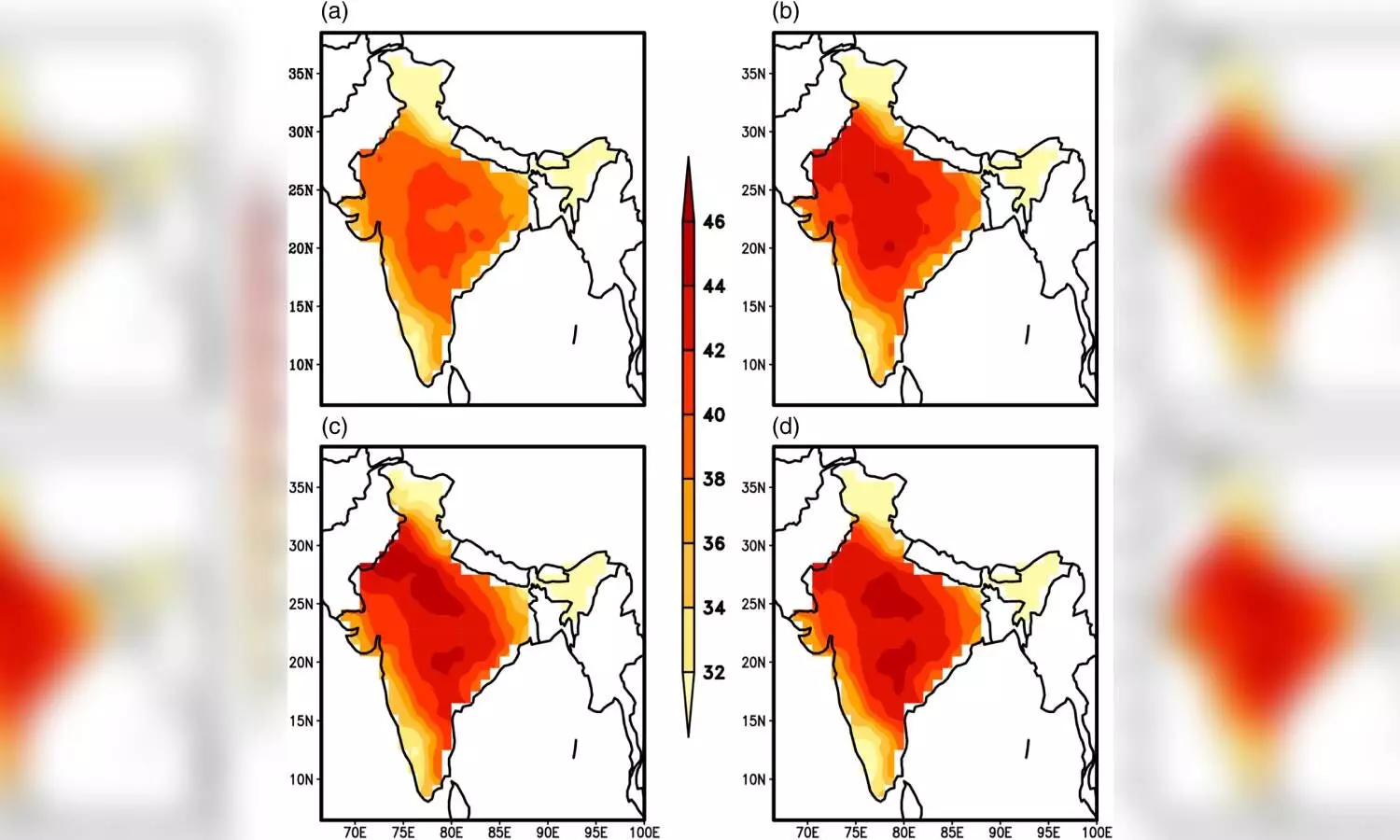Deadly heatwaves in India result of Arctic warming: Study
A recent study conducted by researchers from India and Brazil showed that deadly Indian heatwaves occur due to a theoretical mechanism called ‘Quasi-Resonant Amplification’ (QRA) caused by Arctic warming as a result of global warming.
By Newsmeter Network
Hyderabad: A recent study conducted by researchers from India and Brazil showed that deadly Indian heatwaves occur due to a theoretical mechanism called 'Quasi-Resonant Amplification' (QRA) caused by Arctic warming as a result of global warming.
The research article titled "Large-scale connection to Deadly Indian Heatwaves" was published in the reputed British journal 'Quarterly Journal of Royal Meteorology'. The team of researchers included a PhD student from the University of Hyderabad Govardhan Dandu. Other members were Dr. V. B. Rao from the National Institute for Space Research, INPE, Brazil; Dr. K. Koteswara Rao, a corresponding author from Azim Premji University; Dr. B. Mahendranath from Andhra University; and Dr. T. V. Lakshmi Kumar from SRM Institute of Science and Technology.
Heatwaves causing havoc
Recently, India has seen an increase in heatwaves, occurring during the summer season of April and May, causing unprecedented number of deaths. A heatwave is a period of excessively hot weather accompanied by high humidity leading to a risk of life.
Severe heatwaves resulting in thousands of deaths of humans and livestock were reported around the eastern Indian state of Odisha in 1998, in Andhra Pradesh in 2003, and in Ahmedabad and other parts of Gujarat in 2010. In 2015, a particularly major heatwave affected large parts of India and Pakistan claiming as many as 3,500 lives. Even globally, the World Health Organization (WHO) noted that more than 1. 6 lakh people died due to severe heatwaves during the period 1998 to 2017.
Climate change and heatwave
The Arctic region is warming at an alarming rate, leading to what is called 'Arctic Warming'. In the Arctic region, temperature is increasing more than twice as fast as the global average. Arctic warming, a result of global warming, reduces normal equator (a hot region) to pole temperature gradient because normally the Arctic region is very cold.
Decrease in temperature gradient favors decrease of zonal wind (wind from west to east which occurs in the mid-latitudes) and its vertical shear (because of so called thermal wind relation). A decrease of zonal wind favors in some special conditions (which are becoming more frequent recently) an increase of Rossby wave amplitudes for some wavenumbers or the QRA. The positioning of amplified Rossby waves is such that in some specific locations (over India) a high-pressure cell occurs, leading to sinking motion and increasing surface temperature drastically. This increase of surface temperature causes heatwaves.
Although, this QRA mechanism is shown to be the cause of 2003 European heatwave and 2010 Pakistan flood and Russian heatwave and other extreme events affecting human and animal life, Dr. V. B Rao and co-authors have shown for the first time that heatwaves leading to deaths can occur in India due to QRA caused by Arctic warming as a result of global warming. Indeed, several authors have shown that Indian heatwaves are increasing but a possible cause is global warming. Dr. Rao and others have suggested in their article that Indian heatwaves can be predicted about four days in advance prior to their occurrence.